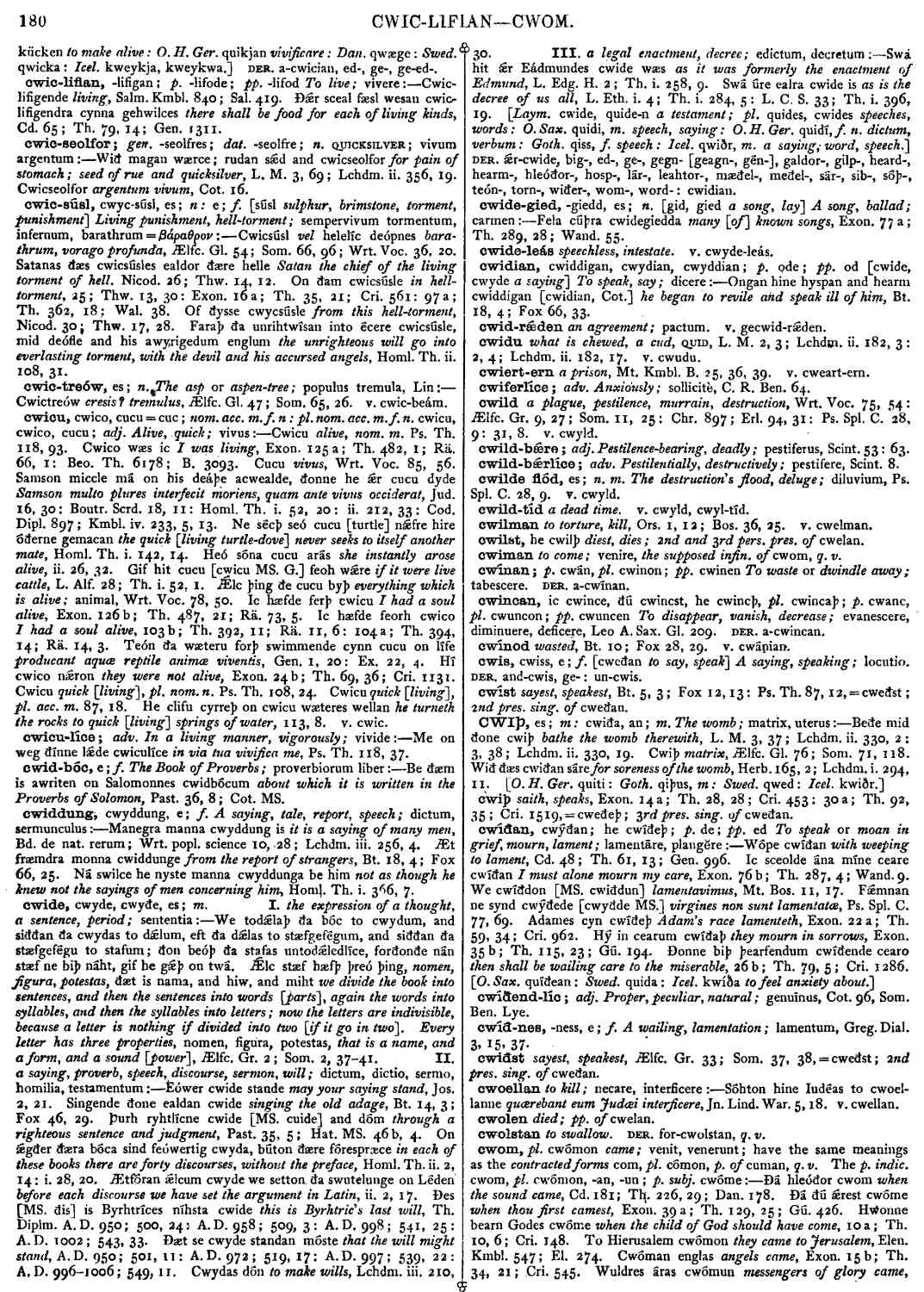cwom
- verb
- participle
-
Ðá hleóðor cwom
when the sound came,
- Cd. 181 ;
- Th. 226, 29;
- Dan. 178 .
-
Ðá ðú ǽrest cwóme
when thou first camest,
- Exon. 39a ;
- Th. 129, 25;
- Gú. 426 .
-
Hwonne bearn Godes cwóme
when the child of God should have come,
- 10a ;
- Th. 10, 6;
- Cri. 148 .
-
To Hierasalem cwómon
they came to Jerusalem,
- Elen. Kmbl. 547 ;
- El. 274 .
-
Cwóman englas
angels came,
- Exon. 15b ;
- Th. 34, 21;
- Cri. 545 .
-
Wuldres áras cwómun
messengers of glory came,
- 15a ;
- Th. 31, 11;
- Cri. 494 .
-
Cwom, pl. cwómon, seent to be from cwiman, which I have not found in A. Sax. It is in Goth. qiman [pronounced kwiman = cwiman]; p. qam, pl. qemum; pp. qumans to come; venire. Goth. Ni mag qiman [kwiman = cwiman]. A. Sax. Ic ne mæg cuman
I cannot come,
- Lk. Bos. 14, 20.
Bosworth, Joseph. “cwom.” In An Anglo-Saxon Dictionary Online, edited by Thomas Northcote Toller, Christ Sean, and Ondřej Tichy. Prague: Faculty of Arts, Charles University, 2014. https://bosworthtoller.com/7006.
Checked: 1